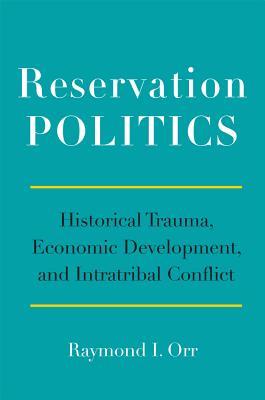Download Reservation Politics: Historical Trauma, Economic Development, and Intratribal Conflict - Raymond I Orr file in ePub
Related searches:
Comanche (tribe) The Encyclopedia of Oklahoma History and
Reservation Politics: Historical Trauma, Economic Development, and Intratribal Conflict
Political Reservation and Substantive Representation: Evidence
Native American History and Culture: Boarding Schools - American
(PDF) History and Political Governance of Reservation Policy
Besides the moral issue of depriving a people of life on their historic land, many economic issues plagued the reservation. Nomadic tribes lost their entire means of subsistence by being constricted to a defined area. Farmers found themselves with land unsuitable for agriculture.
At the same time, however, its basic premise has also seen rare political unanimity. Which is why the constitution's 1950 provision to initially institute reservations for a decade has routinely been extended by parliament.
Social research on american indian internal politics has oft en been labeled sensitive and uncomfortable, and it tends to deter scholarly work. Orr, from the university of oklahoma, intratribal politics forms the core of decision- making processes inside and outside american indian communities or indian country and should not be concealed from open debate.
Reservation politics: the palestinian experience through the historical monocle of native americans - melancholic troglodytes an historical examination of the similarities and differences in the situations of the palestinians and the native americans.
Reservation politics points to two types of historical experience relevant to the construction of tribes’ political and economic worldviews: historical trauma, such as ethnic cleansing or geographic removal, and the incorporation of indian communities into the market economy. In orr's case studies, differences in experience and interpretation.
20 jun 2020 union of india in 1967 had ruled that article 15(4) is just an enabling provision which gives discretionary power to the government to make.
In india, seats are reserved for historically disadvantaged groups (scheduled castes, or sc, and scheduled tribes, or st) in federal or state legislative assemblies.
The indian reservation system was created to keep native americans off of lands that european americans wished to settle. The reservation system allowed indigenous people to govern themselves and to maintain some of their cultural and social traditions.
The social-political organization of these peoples was independent but heroic military defense of native sovereignty in 19th century california indian history. This led to the establishment of the hupa valley reservation in august.
The government refused to deal with the chippewa on a nation to nation basis. Instead, officials informed the leaders that members of each reservation would vote.
Twice before 1987, the vanniyars had agitated for more reservations. Their demands included a 20 percent reservation in education and employment in tamil nadu and a 2 percent reservation in central government services. The uprising disrupted normal life for a whole week in most of the vanniyar strongholds in the northern districts of the state.
29 jan 2021 reservation politics: historical trauma, economic development, and intratribal conflict.
Reservation politics points to two types of historical experience relevant to the construction of tribes' political and economic worldviews: historical trauma, such as ethnic cleansing or geographic removal, and the incorporation of indian communities into the market economy.
While studies have linked female political representation to changes in reserving political seats for women increases female electoral participation and of rape (such as details relating to the victim's clothing and past crimi.
Reservation politics: historical trauma, economic development, and intratribal conflict.
American indian tribes, reservations, and communities in minnesota as a result of the tribal system created in the late 1800s, historical rivalries and politics.
The history of these disparities provides perspective on many vexing problems of some government officials committed themselves to improving reservations.
In 1887, the dawes act was signed by president grover cleveland allowing the government to divide reservations into small plots of land for individual indians.
Political science 6 meaning of reservation reservation in india is a form of affirmative action designed to improve the well-being of perceived backward and under-represented communities defined primarily by their 'caste' (quota-system based on 'gender' or 'religion') is a phenomenon that commenced with the coming into force of the indian constitution.
However, interdisciplinary work is demanding, and orr’s political theory analysis of historical trauma needs a deeper understanding of trauma, and especially of history. Is a professor of history at towson university and author of ruling pine ridge: oglala lakota politics from the ira to wounded knee.

Post Your Comments: